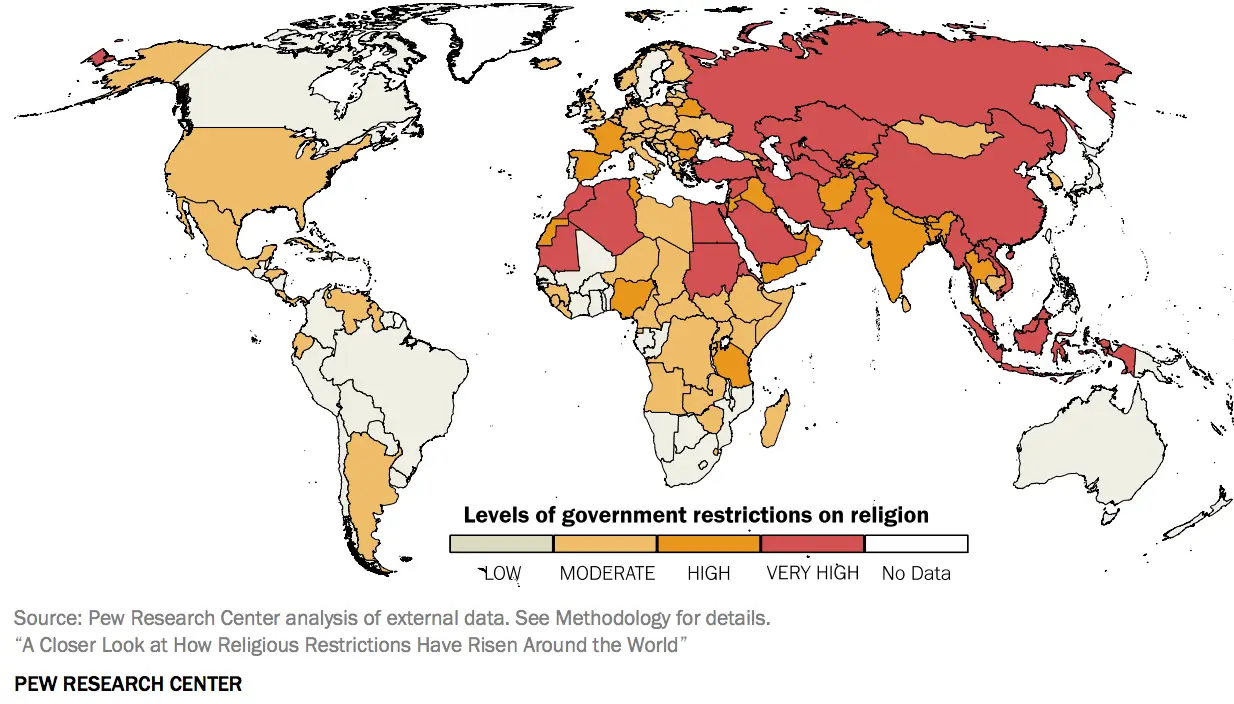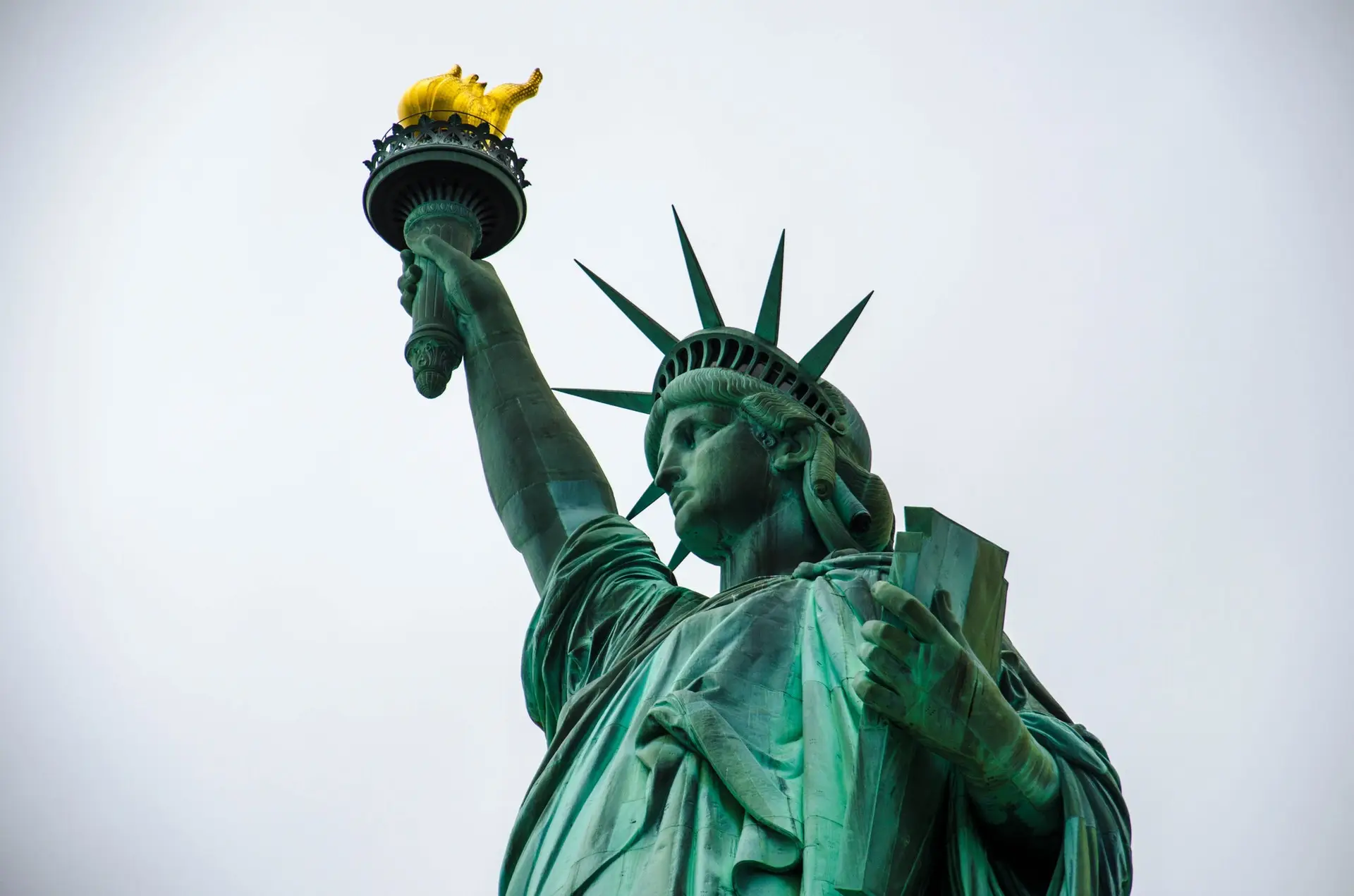
Responding to Religious Intolerance
It was passion for religious liberty that prompted Baptists from 50 nations to unanimously adopt a resolution condemning religious intolerance and religiously motivated violence during the July 7–12, 2019, Baptist World Alliance (BWA) Annual Gathering in Nassau, Bahamas.
Baptists believe they should live in peace with everyone just as Romans 12:18 instructs. From earliest beginnings, Baptists have sought the right for all to worship freely and to live at peace in the same geographical area with those of differing beliefs.
Religious liberty is for all
That is why the 2019 resolution condemned attacks on Jews and Muslims as well as Christians. Every human being is created in God’s image and worthy of respect, the Bible teaches. Religious liberty is for all, not just for Christians or Baptist Christians.
Despite the good words of Baptists, two reports also released in July indicate religious intolerance and religiously motivated violence are increasing. And Christians are the most persecuted group in the world.
On July 15, Pew Research released a decade long study of religious restrictions and persecution around the world. Among the many findings was that the number of governments that impose “high or very high” restrictions on religion have increased from 40 in 2007 to 52 in 2017. The number of countries where “social hostilities” are highest because of religious belief has increased from 39 to 56 in the same period of time.
That is more than a 20% increase in each category, Pew observed.
Most of the countries with the highest scores in government favoritism have Islam as their official religion — 27 of the 43 nations with an official religion, Pew reported.
Among nations mentioned by name were Saudi Arabia where it is a criminal offense to “cast doubt on the fundamentals of Islam” and to publish information that “contradict the provisions of Islamic law.” China was cited for reports that the government arrested, tortured and physically abused members of both registered and unregistered religious groups.”
On July 8, the Foreign and Commonwealth Office (FCO) of the British government released a year-long study focused on the persecution of Christians. The report was led by the Anglican Bishop of Truro, the Right Reverend Philip Mounstephen, at the request of British Foreign Secretary Jeremy Hunt.
Persecution problem is growing
The FCO report concluded about 245 million Christians worldwide face persecution for their faith. And the problem is growing. Between 2015 and 2017 the number of countries where Christians are persecuted rose from 128 to 144, the report said.
Foreign Secretary Hunt concluded there is “widespread evidence showing that Christians are by far the most widely persecuted religion.” He called it a “global phenomenon that is growing in scale and intensity” saying the acts of violence against Christians are becoming more widespread and increasing in severity.
Mounstephen, the report’s author, went further. In an interim report released in January, he supported a finding that 80% of persecuted believers around the world are Christians.
The final report said, “The eradication of Christians and other minorities on pain of the sword or other violent means was the specific and stated objective of extremist groups in Syria, Iraq, Egypt, North-East Nigerian and the Philippines.
“An intent to erase all evidence of the Christian presence was made plain by the removal of crosses, the destruction of church buildings and other church symbols. The killing and abduction of clergy represented a direct attack on the church’s structure and leadership,” the report continued.
A move toward genocide
For the first time, to this writer’s knowledge, the FCO report put a government on record of supporting what some Christian leaders have said for several years. In certain parts of the world Christians face genocide.
The report declared that persecution of Christians in the Middle East and Africa has reached such a “vast scale” that it is coming “close to meeting the international definition of genocide.” The report added, “Where these and other incidents meet the test of genocide, governments will be required to bring perpetrators to justice, aid victims and take preventive measures for the future.”
Specifically mentioned was the Middle East where the report said Christianity “is at risk of disappearing.” Christians in Palestine represent less than 1.5% of the population while in Iraq the number has fallen from 1.5 million before 2003 to less than 120,000.
The report also slammed the British government for not taking religious persecution, especially persecution of Christians, seriously. In response, the British government announced on July 18 that it has accepted all the report’s recommendations including imposing sanctions on foreign governments that violate religious liberty.
That places Great Britain alongside the United States which has begun placing economic sanctions on selected leaders of groups accused of religious persecution in the Middle East and in Myanmar according to an announcement by Vice President Mike Pence the same day at the State Department’s Ministerial to Advance Religious Freedom. That meeting drew official participation from 106 nations.
Whether religious intolerance and/or religiously motivated violence is carried out by individuals, by groups, by government policy or allowed by government indifference, it is wrong.
Plight of Christians must be addressed
This month there has been an unusual convergence of personal, denominational, governmental and academic concern raised about religious persecution and the persecution of Christians. Now no one can honestly deny or ignore the reality and plight of Christians. That issue must be addressed.
But, again, religious liberty is for all people. That is why the BWA resolution called on Christians everywhere to “offer the hand of sincere friendship” to those of other faiths “as a prophetic response to God’s love in the face of terrorism, violence and religious intolerance.”
May it be so. May God’s love — expressed in respect and friendship among all peoples — ensure everyone enjoys the God-given right to religious liberty and freedom from intolerance and violence.
Source for featured map: “A Closer Look at How Religious Restrictions Have Risen Around the World” Pew Research Center, Washington, D.C. (July 15, 2019) https://www.pewforum.org/2019/07/15/a-closer-look-at-how-religious-restrictions-have-risen-around-the-world/.

